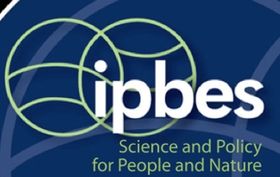The third session of the Plenary of the Intergovernmental Platform on Biodiversity and Ecosystem Services (IPBES-3) has concluded with delegates adopting a number of decisions, including on: the work programme for 2014-2018; a stakeholder engagement strategy (SES); a communications and outreach strategy; the financial and budgetary arrangements; and rules of procedure for the Platform on, inter alia, the conflict of interest (COI) policy.
 17 January 2015: The third session of the Plenary of the Intergovernmental Platform on Biodiversity and Ecosystem Services (IPBES-3) concluded with delegates adopting a number of decisions, including on: the work programme for 2014-2018; a stakeholder engagement strategy (SES); a communications and outreach strategy; the financial and budgetary arrangements; and rules of procedure for the Platform on, inter alia, the conflict of interest (COI) policy.
17 January 2015: The third session of the Plenary of the Intergovernmental Platform on Biodiversity and Ecosystem Services (IPBES-3) concluded with delegates adopting a number of decisions, including on: the work programme for 2014-2018; a stakeholder engagement strategy (SES); a communications and outreach strategy; the financial and budgetary arrangements; and rules of procedure for the Platform on, inter alia, the conflict of interest (COI) policy.
Delegates did not reach agreement on procedures for the review of the Platform, and on policy and procedures for the admission of observers.
In a welcome to the meeting, Executive Secretary Anne Larigauderie told of a “very rich year of implementation of the first IPBES work programme,” and she reported, inter alia, that: work on each of the 18 deliverables had been initiated; 14 expert groups were established; and IPBES’ new conceptual framework was proving to be a robust tool promoting coherence across deliverables.
On global, regional and subregional assessments, the Platform agreed to initiate a set of regional assessments in Africa, the Americas, Asia and the Pacific, and Europe and Central Asia. These assessments will be a central contribution to a planned global assessment to be completed by 2019. The Platform also noted the development of a draft guide for the production and integration of assessments from and across all levels, and requested that the guide be completed with a view to its becoming a living document. Members further: approved undertaking regional and subregional assessments in accordance with the procedures for the preparation of the Platform’s deliverables, for consideration by IPBES-6; agreed to consider the option of undertaking a regional assessment on the open ocean at IPBES-4; approved a scoping process for a global assessment on biodiversity and ecosystem services, for consideration by IPBES-4; and requested the Multi-disciplinary Expert Panel (MEP), in consultation with the Bureau, to develop a coordinated approach among the approved processes for the regional/subregional assessments, the thematic assessments and a global assessment, as resources permit, with a view to ensuring consistency while maintaining the quality of each of the assessments.
The Plenary also welcomed the establishment of a task force on indigenous and local knowledge (ILK) systems; and the establishment of a task force on capacity-building for the period 2014-2018.
With regard to the scoping documents under consideration, on land degradation and restoration, the Plenary approved the proposed assessment approach and structure of the final assessment report, which will be presented in a summary for policymakers and an eight-chapter report. With regard to the ‘conceptualization of values,’ the Plenary requested the group to revise, following an open review by governments and stakeholders, the report on scoping for the methodological assessment regarding diverse conceptualization of multiple values of nature and its benefits, including biodiversity and ecosystem functions and services.
Furthermore, extensive discussions took place with agreement to “couple” the next phase of thematic assessments―on land degradation and restoration, sustainable use of biodiversity, and invasive alien species―with regional and subregional assessments, in order to kick-start activities related to the remaining three IPBES functions: implementing and promoting assessments of various geographic and thematic scope; promoting the accessibility and further development of identified policy support tools; and identifying and addressing capacity-building needs through integration and by catalyzing financial support.
IPBES-3 met from 12-17 January 2015 in Bonn, Germany. Over 300 participants attended the meeting, representing IPBES member and non-member governments, UN agencies and convention secretariats, intergovernmental organizations, non-governmental organizations, and various stakeholder groups. [IISD RS coverage of IPBES-3] [UNEP Press Release] [IPBES Press Release]